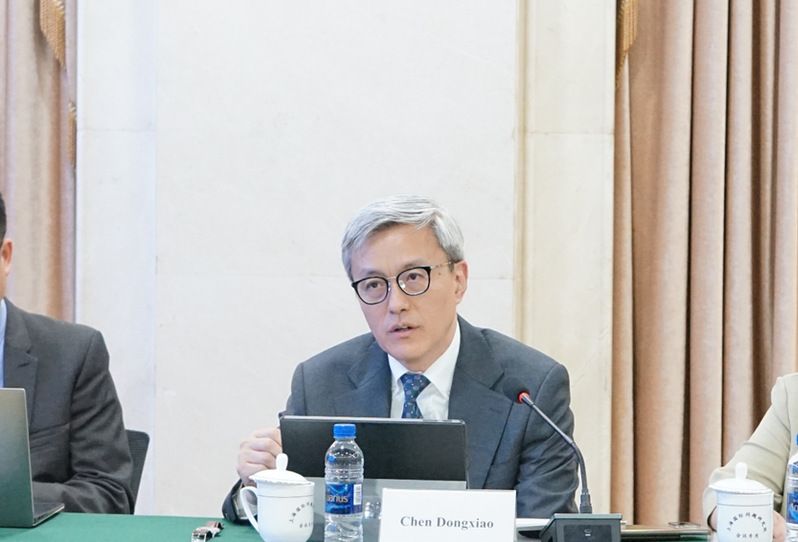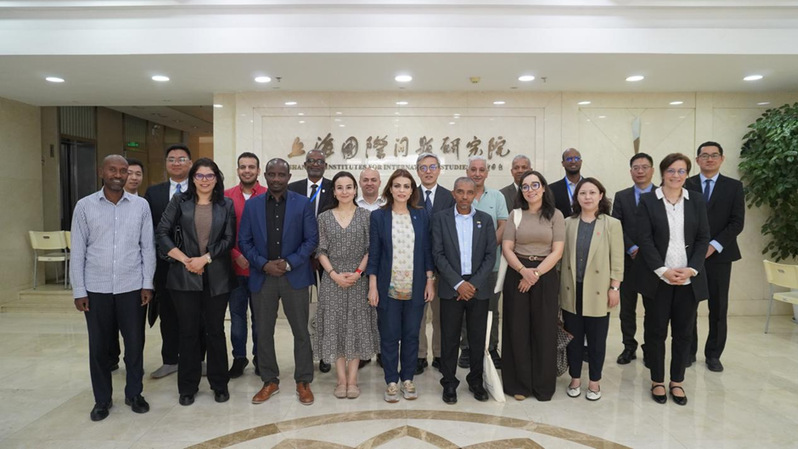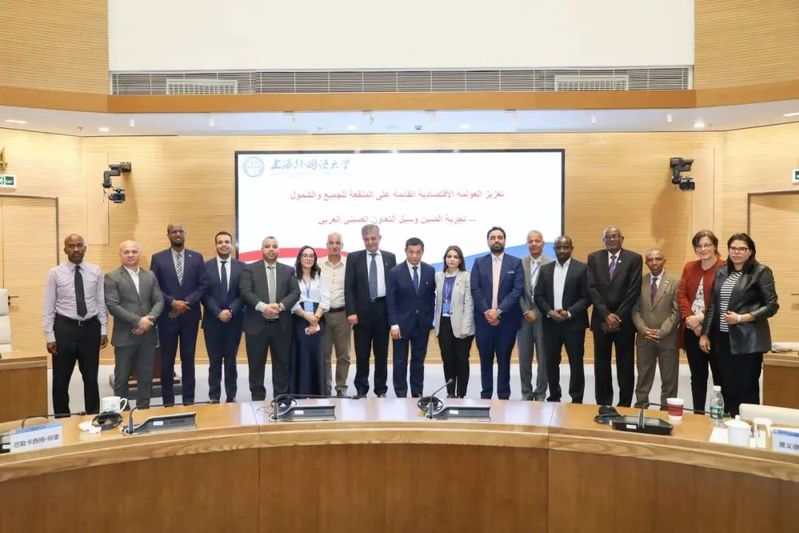The global trend toward multipolarity and economic globalization is irreversible. In response, China advocates for true multilateralism—promoting an equitable and orderly multipolar world and inclusive, beneficial economic globalization—while striving to steer global governance toward a more just and reasonable direction. From April 17 to 19, the Arab Officials Training Program focused on these themes through a series of lectures and exchange activities.
On the morning of April 19, the participants visited the Shanghai Institutes for International Studies (SIIS) for a thematic exchange. During the keynote session, Dr. Chen Dongxiao, President of SIIS, delivered a speech titled “Global Governance in an Era of Multipolarity: The Shared Mission of China and the Global South.” He emphasized that multilateralism, with deep historical roots, has played a crucial role in the evolution of international relations. However, today it is being undermined by hegemony and unilateralism. True multilateralism must adhere to the principles of indivisibility, equality, and universality. It should firmly oppose protectionism and unilateral actions that hinder multipolarity and globalization. Dr. Chen also called on the international community to uphold the UN-centered international system. In the discussion session, Arab officials engaged with SIIS experts on key topics including the Global South, energy transition, and technology governance.


On the morning of April 17, Professor Zhang Yuguo, Party Secretary of the School of International Finance and Trade at Shanghai International Studies University, delivered a lecture titled “Promoting Inclusive and Beneficial Economic Globalization.” He explained that economic globalization has gone through several developmental phases and has significantly contributed to global growth, trade and investment expansion, digital economy development, and poverty reduction. At the same time, it faces numerous challenges such as populism, the digital divide, climate change, and governance dilemmas. Currently, China and Arab countries are jointly building the Five Cooperation Frameworks under the China-Arab partnership, working together to push economic globalization in a more open, inclusive, balanced, and win-win direction. Following the lecture, Professor Zhang engaged in a lively discussion with the Arab officials on how to further deepen China-Arab cooperation.


Against the backdrop of profound global transformations, China and Arab countries are jointly exploring new pathways for cooperation across various fields and actively practicing multilateralism. These efforts not only create more opportunities for mutual development but also contribute strong momentum to the reform of the global governance system toward greater fairness and justice.
